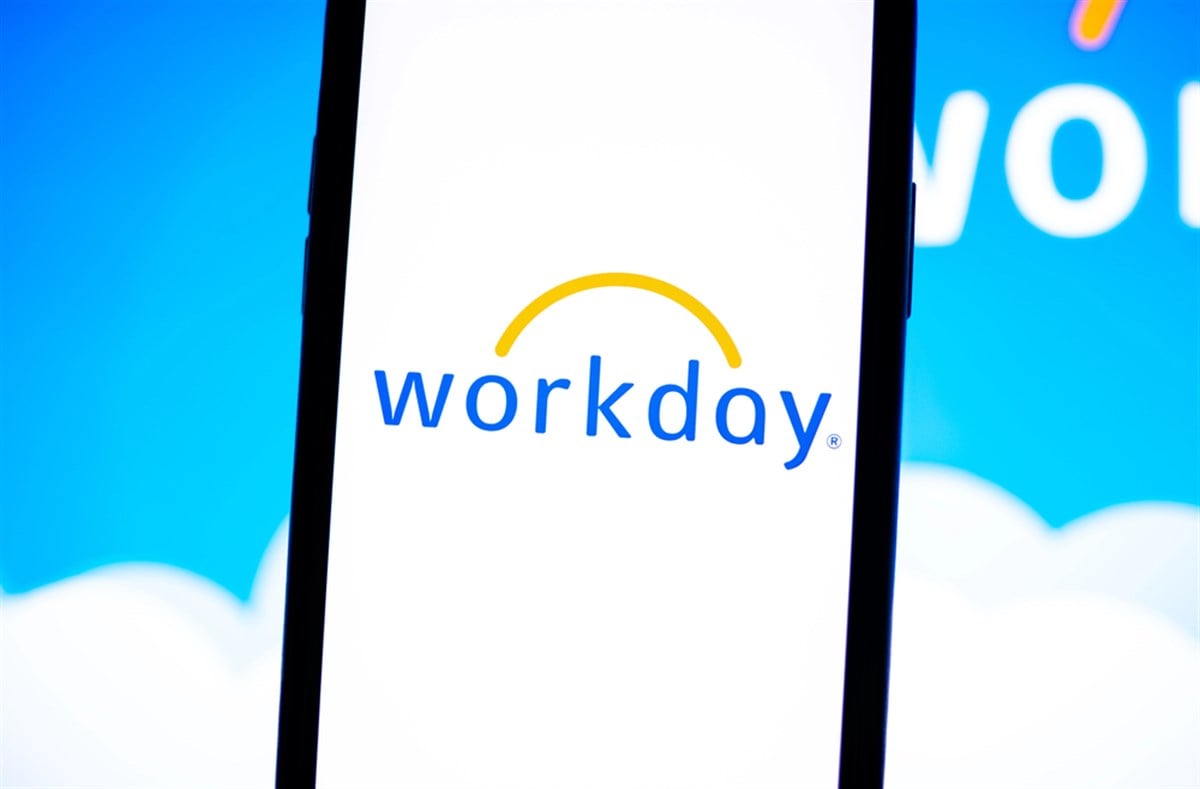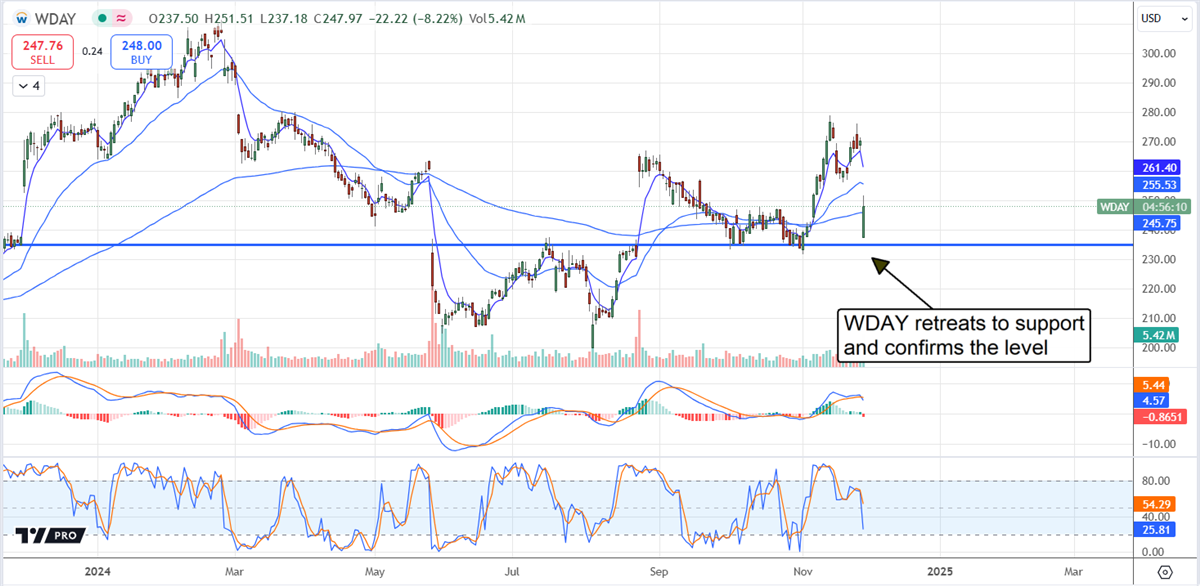Contrarian Play: Why Workday Stock Is a Buy After Guidance Cut Workday is well-positioned to benefit from AI demand with its easy-to-use, scalable solutions for HR and financial departments.
This story originally appeared on MarketBeat

Workday (NASDAQ: WDAY) lowered its full-year guidance, which isn’t exactly a good thing. However, the company continues to expect solid double-digit growth and to sustain the pace next year, so the price implosion it caused is a likely opportunity to buy. This company lowered its guidance but remains the leader in its field, providing a scalable plug-and-play platform for financial and HR automation that has sustained demand and a robust outlook for growth.
The consensus forecasts are for sustained mid-teens revenue growth into the early 2030s and for the margin to widen steadily. The stock trades at a relatively high valuation today, but the market still undervalues it relative to the outlook. This stock is trading under 15x its 2030 EPS forecasts. It is a deep value for a tech company with positive cash flow, virtually no leverage, and a high probability of capital returns increasing and driving additional value gains over time.
Workday Lowers Guidance: So What? Results Are Solid, and Growth Is Forecasted
The only things wrong with Workday’s results are the guidance and market response to them. However, the reduction is slim, and the company expects revenue growth to be sustained at a 15% pace in Q4 and strong margins, so the reduction isn’t all that bad.
Based on this year's trends, the guidance is likely cautious, and outperformance should be as expected in Q3. The company produced $2.16 billion in net revenue in Q3, a gain of 15.8% compared to last year, which outpaced MarketBeat’s reported consensus by 470 basis points. The strength was driven by a 15.8% increase in subscription revenue driven by new client wins, which is 90% of the net.
The margin news is also good. The company widened its gross and operating margin to drive leverage results on the bottom line. The company reported GAAP income up about 75% and adjusted about 21% compared to last year, outpacing consensus by a wide margin. The adjusted earnings beat consensus by 730 basis points, putting the guidance reduction into stark contrast.
Workday’s Solid Balance Sheet on Track for Robust Equity Gains
Workday has a solid balance sheet that is well-supported by its cash flow and unencumbered by debt. The cash balance is down in Q3 but offset by reduced liabilities that left shareholder equity up by 7.5%, with an expectation for equity growth as the cash balance rebuilds. Other pertinent highlights include low leverage at less than 1x equity, about 1x cash, and the flexibility to invest when and as needed to ensure long-term growth.
Analysts remain supportive of the WDAY market but have begun lowering their price targets, which may cap gains in 2024. Marketbeat tracked eight revisions within the first 24 hours of the release, including numerous price target reductions and a downgrade to Neutral from Piper Sandler. Still, the consensus of the fresh targets aligns with the broader consensus, and not all the revisions were lower. Morgan Stanley increased its target to $330, citing the solid quarter and long-term outlook. Consensus is near $290 in late November, implying a 20% upside from critical support levels.
Workday Pulls Back to Critical Support: Support Is Present
Workday’s price pullback took the market to a critical support level where buying is evident. The market is already rebounding strongly from its lows and will likely continue rebounding this year. The caveat is that this market is choppy and range-bound, with potential for solid resistance in the $265 to $275 range, just below the analysts' consensus estimate. That level may remain in place until the analysts lift their targets again, which isn’t likely until early to mid-2024.











